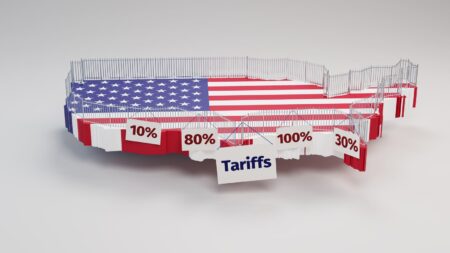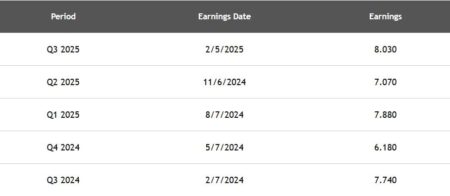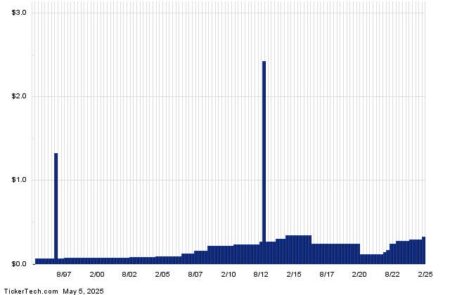Key News
It was a quiet night, as Mainland China, Hong Kong, Japan, South Korea, and Thailand were all closed for Labor Day, Buddha’s Birthday, Children’s Day, Children’s Day, and Coronation Day, respectively. Hong Kong and Mainland China will reopen tomorrow.
There are signs that the trade war is slowly cooling off after President Trump stated that he wants a fair deal with China. The President claimed officials from both countries have begun talking. Those comments were reiterated in his Sunday morning NBC news interview, according to Reuters. The Ministry of Commerce’s press conference appeared to refute the notion that officials were talking, though the government is “conducting an assessment”. Baby steps!
The head of the Ministry of Finance (MoF) published an article titled “Scientific Design and Successful Practice of More Active Fiscal Policy”. Key points include increasing the budget deficit to 4% in 2025, representing an increase of +1% from last year, to RMB 5 trillion. Implementation tools include “government bonds, fiscal subsidies, special funds, tax incentives, and other policy tools”. The new government bond issuance will be RMB 11 trillion versus RMB 9 trillion last year.
Reuters also reported that Alibaba’s Ant Group will list Ant International, the overseas unit of the famous Alipay mobile payment app, in Hong Kong, according to “unnamed sources,” though I have not seen a filing yet.
Q1 second home sale volumes in Tier 1 cities increased +17% year-over-year (YoY).
Online travel website Qunar reported that airline tickets sold during the May Day holiday increased by +30% YoY, while Ctrip reported that inbound tourism orders increased by 130% YoY.
The Wall Street Journal had a great article written by Ben Cohen on the coming tariff tsunami that has not yet hit, but is on the horizon and approaching shore rapidly, especially for small businesses that lack DC lobbyists. I highly recommend reading the interview with supply-chain logistics firm founder and CEO Ryan Petersen titled “The CEO Who Says an Asteroid Is Coming to Destroy America’s Businesses”. The headline tells it all, though it is filled with quotes such as “If the tariffs on Chinese goods continue at this rate, thousands of American companies will fail and millions of employees will lose their jobs.” Yikes! A worthwhile read!
As much as I enjoyed the Wall Street Journal article, I have the opposite feeling about a Financial Times article titled “US lawmakers urge SEC to delist Alibaba and Chinese companies”. The article was little more than regurgitating a press release by two members of Congress on Friday night, with no conflicting opinions or interpretations offered. The article does not mention that the SEC states on their website that all current US listings adhere to the rules. I suspect the ADR attention is not coming directly from Trump, but from China hawks within his administration, as I do not believe the ADR issue is related to US-China trade negotiations. Having hawks on staff is negotiating 101, though I suspect Trump will shut down the issue as it would complicate, if not jeopardize, US-China trade negotiations.
Broadening the goods trade war, which doesn’t include services because the US is the #1 services exporter, into the financial sphere makes no sense. Banning Chinese companies from US exchanges would effectively seal current US private equity investments in private Chinese companies in China! Why they think delisting the stocks hurts the Chinese government is bizarre, as US investors own the stocks! If you said let’s jeopardize $800 billion worth of US investors’ capital, you would be thrown out of the room, but in DC, if you say China, somehow it becomes legitimate. The Financial Times article’s comments section shows the significant skepticism of their readers, a positive sign.
New Content
Read our latest article:
New Drivers For China Healthcare: AI Med-Tech Innovation, Cancer Treatment, & Favorable Balance of Trade
Please click here to read
Last Night’s Performance
Last Night’s Exchange Rates, Prices, & Yields
Mainland China’s currency, commodity, and bond markets were closed overnight.
Read the full article here
















